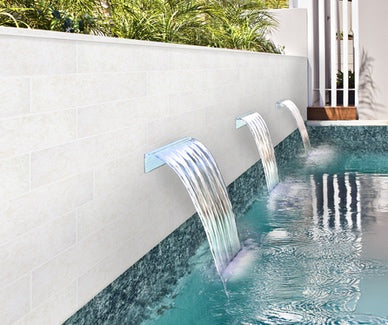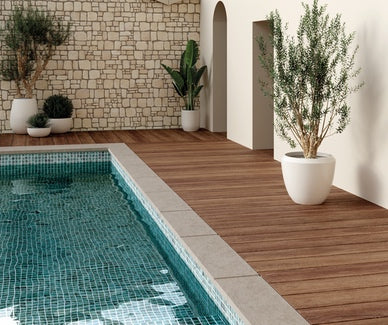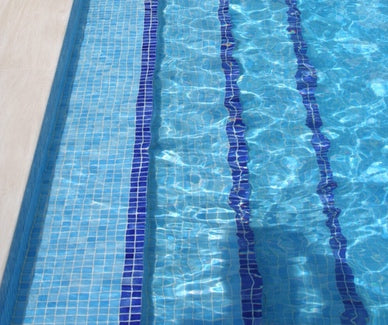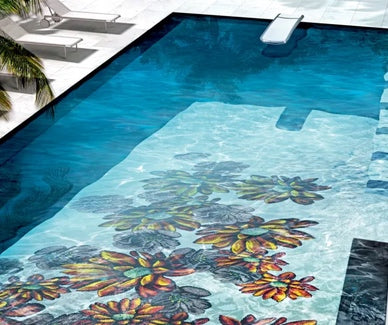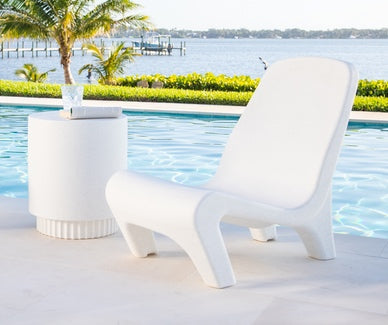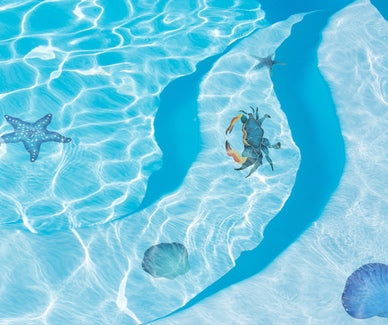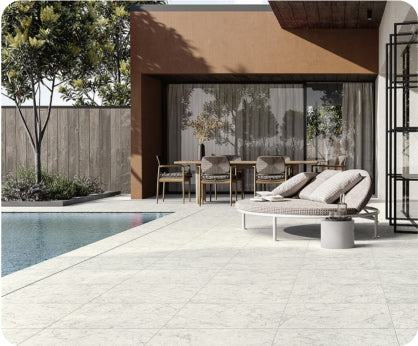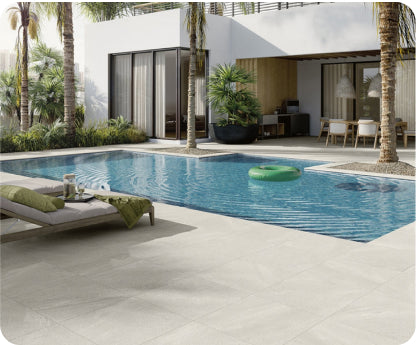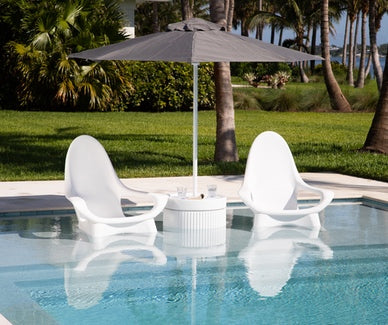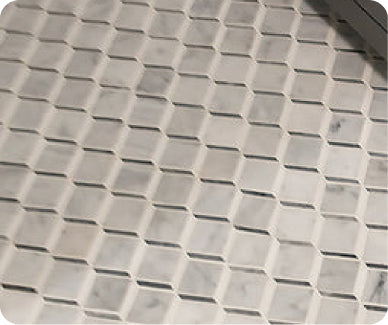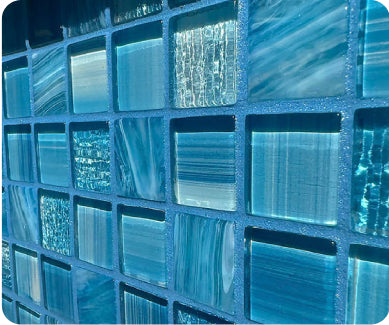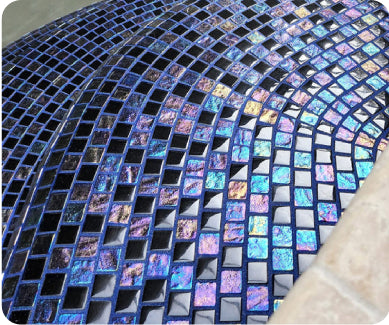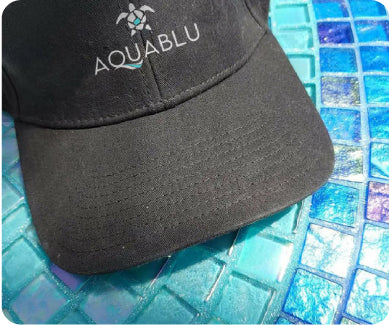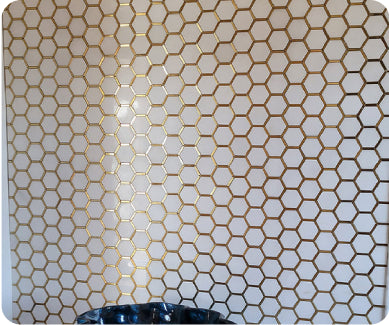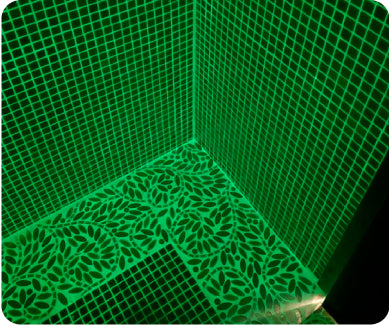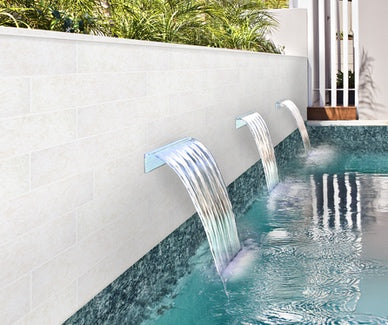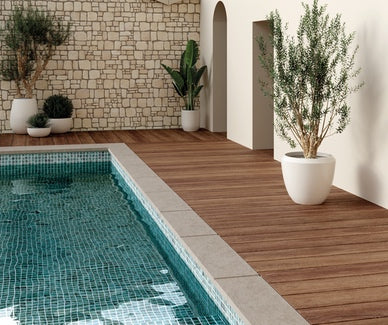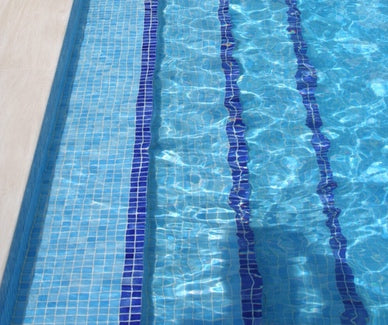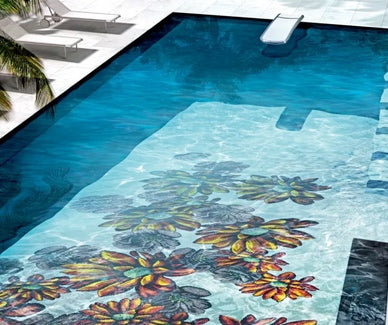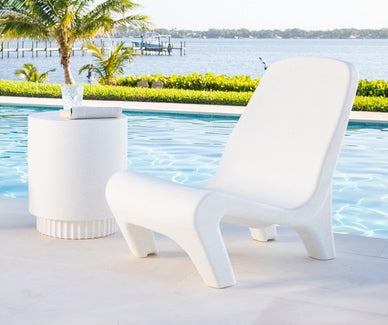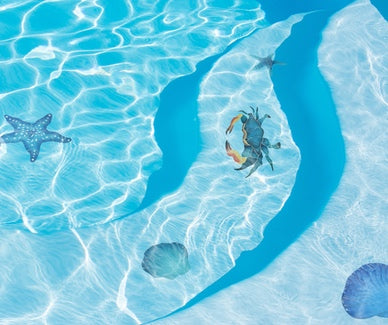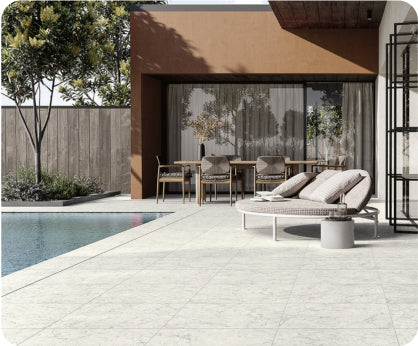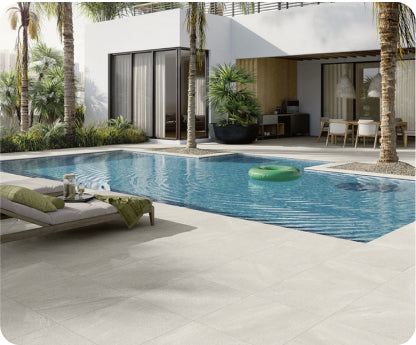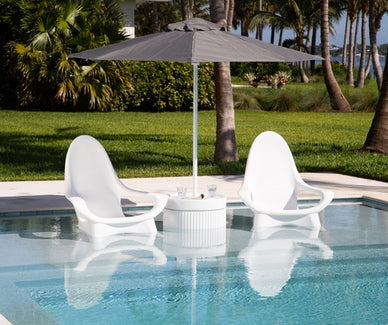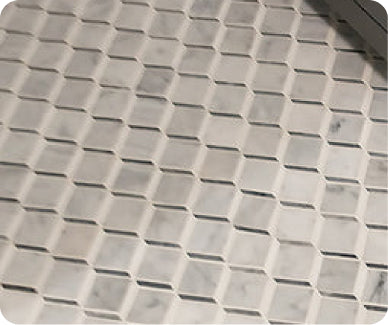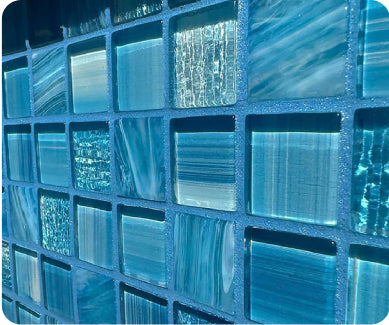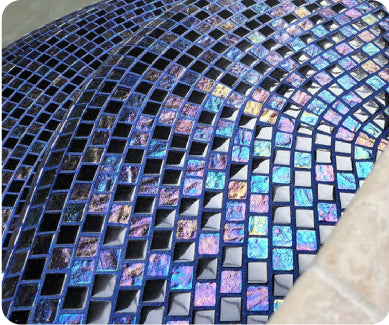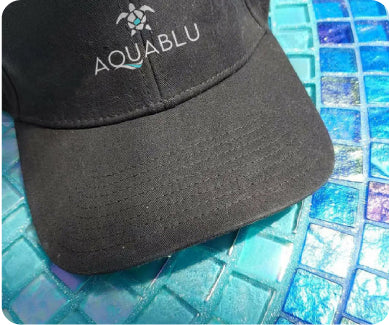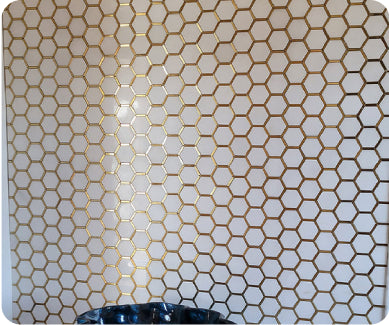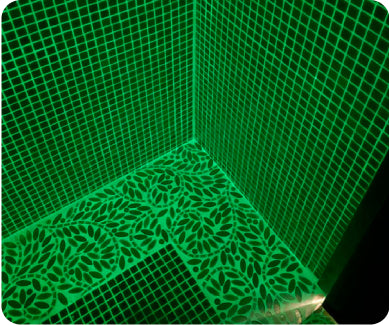How Long Should Pool Tile Last? 4 Things to Know
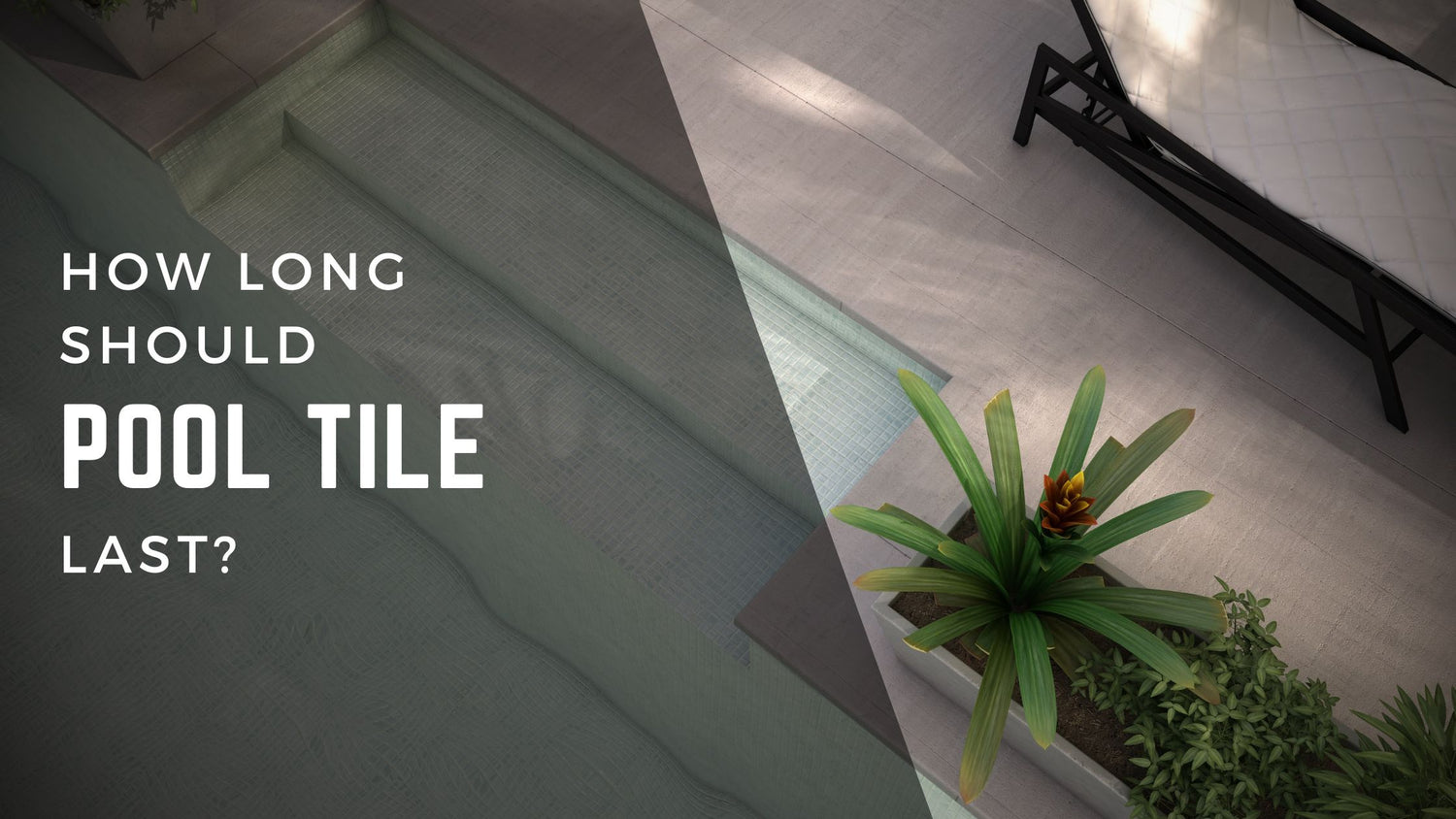
Investing in a swimming pool is a significant decision for any homeowner, particularly those who view it as a central hub for entertainment and relaxation. Along with the initial thrill of owning a pool comes the ongoing responsibility of maintenance and upkeep, a critical aspect of maximizing your pool's longevity and value. Pool tile is one such element that significantly impacts your pool's aesthetic appeal and overall lifespan, but how long should pool tile last? It's a question many pool owners ponder as they envision years of poolside fun.
This comprehensive guide explores the factors affecting pool tile longevity, maintenance tips to extend their lifespan, signs of wear and tear that warrant a replacement, and valuable insights for homeowners looking to make informed decisions about common pool options.
Table Of Contents:
- 1. Factors Influencing How Long Pool Tile Should Last
- 3. Extending Tile Lifespan Through Pool Maintenance
- 4. Recognizing the Need For Replacement: When Is It Time?
- Conclusion
1. Factors Influencing How Long Pool Tile Should Last
When considering how long pool tile should last, there is no one-size-fits-all answer. Several factors influence their longevity, creating a spectrum of lifespans depending on various conditions. The average duration of properly installed and well-maintained pool tile, such as pool waterline tiles, usually ranges between 5 to 10 years. But remember, proper care, quality materials, and professional installation can significantly extend this lifespan, especially in an outdoor living space.
Tile Type
Choosing the right tile for your swimming pool requires careful consideration. Each type exhibits varying degrees of durability and resilience, which can affect your overall pool tile cost.
Glass Tile
Glass pool tile has gained immense popularity in recent years, and for good reason. Its luminous style, with light reflecting beautifully when the sun hits it, adds a touch of elegance and sophistication to any pool design. But beyond its aesthetic appeal, glass tile is renowned for its hardiness and resilience. It proves resistant to frost, heat, ultraviolet (UV) rays, and even fire, making it a durable and reliable choice for demanding environments.
When properly installed, glass pool tiles are the most durable pool finish available. They're able to withstand the harsh conditions of pool water, including chlorine, saltwater, and sun, without fading, cracking, or discoloring. In fact, experts suggest that glass tile can even outlast concrete-based options, making it a wise investment for pool owners who want a finish that will stand the test of time.
Glass tile's durability is further enhanced by its smooth surface, which reduces the risk of bacterial growth and algae formation, making it a hygienic choice for pool surrounds and all-tile pools. Additionally, glass tile's low maintenance requirements make it an attractive option for pool owners who want to minimize upkeep and maximize enjoyment.

Porcelain Tile
When it comes to pool surrounds and wet areas, porcelain pool tile stands out as a top-notch option. Its exceptional durability and water resistance make it an ideal choice for areas that are constantly exposed to water and moisture.
The secret to porcelain tile's superiority lies in its unique production process. Unlike ceramic tile, which is made from a mixture of clay and other minerals, porcelain tile is crafted from a specific type of clay called kaolin, which is fired at an extremely high temperature of between 2381℉ and 3272℉. This process, known as vitrification, creates a tile that is impervious to water and has a much lower water absorption rate than ceramic tile. As a result, porcelain tile is more resistant to staining, freeze-thaw damage, and cracking, making it perfect for pool areas.
Additionally, porcelain tile's dense and non-porous surface makes it easier to clean and maintain, reducing the risk of bacterial growth. With its unparalleled durability and performance, porcelain tile is the go-to choice for pool designers and builders who demand the best.

Ceramic Tile
While ceramic tile may be a popular choice for bathroom and kitchen floors, it's not the best option for pool surrounds and floors. In fact, ceramic tile is not recommended for pool areas due to its high water absorption rate. According to the Tile Council of North America, ceramic tile can absorb up to 3% of its weight in water, which can lead to freeze-thaw damage and cracking in freezing temperatures. Bottom line: ceramic tile isn't a good option for pool and wet applications.
Natural Stone
For homeowners who adore a natural and earthy aesthetic, natural stone tile is a superb choice. It presents a unique aesthetic, lending a rustic elegance to your pool area. However, unlike glass and porcelain tiles, natural stone tiles may require more upkeep to maintain their beauty. It's recommended to have a professional properly seal natural stone tiles periodically.

2. Installation Quality & Materials
The skill and expertise of the installer have a direct correlation to the life expectancy of your pool tile. If the tiles are poorly installed, they're much more susceptible to premature failure and might only last for a few years. However, when a skilled professional handles the installation, adhering to industry standards and using top-tier materials, you can look forward to enjoying beautiful and durable pool tile for a decade or more.
Consider waterproofing with Basecrete before your tile installation. Basecrete is a high-performance, industry-leading flexible waterproofing bondcoat. It helps to protect your pool's shell and in turn, prevent damage that could be caused by leaks behind the tiles. This proprietary blend of polymers provides unmatched strength and adhesion while remaining flexible to absorb movement in the underlying concrete structure.
Let's talk about tile adhesives. Traditionally, tile has been installed using cement-based mortars. While these will work, they are far from the best option. We highly recommend epoxy-based products like the Litoelastic-EVO. Unlike cement-based products, Litoelastic creates an additional layer of waterproofing on top of the shell, preventing leaks and other issues from damaging your tile, all while holding them in place.
Litoelastic is also the best option when installing glass tile. It comes in a pure white color, making it perfect for translucent and semi-translucent tiles as it won't cause the tile to look darker.
Grout is another often overlooked material that will drastically affect the longevity of your pool tile. More than just protecting the tile and preventing chips and cracks, it can be an additional design feature to help accentuate your tile. The Starlike EVO epoxy grout collection offers a ton of beautiful options that will keep your tiles safe and looking great for years to come!

3. Extending Tile Lifespan Through Pool Maintenance
Regular maintenance and attentive care contribute to the longevity of your pool tile, keeping them looking good and functional for years. While this might seem like extra work, these preventative measures can save you from expensive repairs or premature replacements. This is especially important when looking at the cost of pool tile.
Water Chemistry
Consistent water maintenance, focusing on maintaining balanced chemical levels, is paramount. Neglecting proper water balance can spell disaster for pool tile and ultimately affect how long your pool tile will last. Harsh chemicals, high pH levels, and excessive calcium buildup all contribute to tile deterioration, often accelerating their demise. Having the right pool water chemistry is key to long-lasting swimming pool tiles.
Regular Cleaning
Cleaning your pool and specifically the tiles at least every couple of weeks, and more often during peak swimming seasons, helps avoid dirt accumulation. Use a gentle nylon brush or washcloth to scrub the tile surfaces and a designated pool tile cleaner to prevent algae and mineral deposits from taking hold. Employing specialized equipment, such as a pressure washer set on its lowest setting, can simplify this task. However, exercise caution, as excessive pressure can damage tiles, particularly grout lines. Be sure to do regular cleaning of your pool tiles as part of your regular maintenance routine.
Now, we know you're busy. That's why you should consider a robotic pool cleaner like the Cosmy bot. Controlled via an app, you can keep your pool clean without ever getting off the couch!

Using a Pool Cover
A good-quality pool cover offers various benefits when your pool is not in use. It safeguards against dirt and debris entering the pool, minimizes water evaporation, which helps manage calcium build-up, and even reduces heating costs. Employing a cover can notably prolong tile life by shielding them from unnecessary wear and tear and maintaining balanced water conditions. Pool covers help protect pool tiles and are one of the more common choices to protect pools.
4. Recognizing the Need For Replacement: When Is It Time?
Even with rigorous maintenance, tiles may show signs of deterioration over time. Recognizing these signs can help you prevent more significant problems. But at what point do those issues necessitate a replacement? Knowing when to intervene and opt for new tiles ensures both aesthetics and structural integrity, ensuring your pool continues to provide joy and relaxation.
Loose or Missing Tiles
One of the more obvious indications of problems, loose tiles, often point to grout failure or improper installation techniques. When the bonding agent fails, your tiles become prone to detaching. Leaving them unattended poses not only an aesthetic concern but also a safety hazard for anyone using the pool, leading to possible injury from sharp edges.
Stained or Discolored Tiles
Mineral deposits, algae, and other debris, if left unchecked, can embed in your pool tile's surface. When stubborn staining occurs, it signals inadequate cleaning and potentially imbalanced water chemistry. While some stains can be addressed with specific cleaning agents, persistent and deeply embedded discolorations suggest the need for tile replacement. A severely stained pool often detracts from its attractiveness and, if left unchecked, may hint at underlying issues that could compromise tile integrity. If you are seeing damaged tiles, then you may want to start thinking about pool renovations.
Cracked or Chipped Tiles
Cracks or chips may appear in pool tiles due to impacts, freeze-thaw cycles, or even shifting ground. These damaged areas not only mar the look but also serve as points where water can penetrate, leading to further damage beneath the tile. While individual cracks might be repairable, if multiple tiles show signs of severe cracking, a complete replacement might be a wiser long-term solution. The pool tile cost can vary depending on how much needs to be replaced.
Corrosion of Grout
Grout deterioration is an insidious issue. It typically indicates wear and tear or chemical imbalances within your pool. A thorough inspection of your pool tile grout is critical, especially at the start of the swimming season, or if your location enjoys a year-round swim season. Worn-out grout can compromise the integrity of the tiling, enabling water penetration that could weaken the structural adhesion of the tiles. Gaps in the grout can also harbor bacteria and become unsightly breeding grounds for dirt. This is why we recommend an epoxy grout if you want a long-lasting option that's inherently impervious to water.

Conclusion
How long pool tile lasts is a common concern for pool owners who value aesthetics and practicality. Factors such as material selection, installation quality, consistent cleaning, and vigilant monitoring of your water's chemical balance directly affect how many years your pool tiles will serve you. Addressing any signs of deterioration, such as cracked tiles, loose grout, or pervasive stains, is crucial to prevent more extensive damage down the line.
Following the right maintenance techniques and addressing those signs can dramatically prolong their lifespan and maintain a stunning, structurally sound swimming pool you can continue enjoying for years to come. By investing time and effort into care and keeping a keen eye out for wear and tear, you can significantly impact how long your pool tile should last, effectively enhancing the longevity and aesthetic appeal of your backyard oasis.
For help with your next pool project give us a call at (800) 971-1442 and Bring Paradise Home today!

